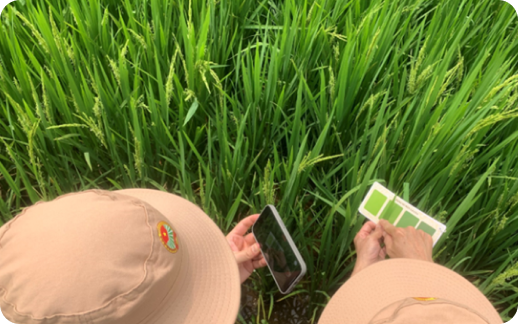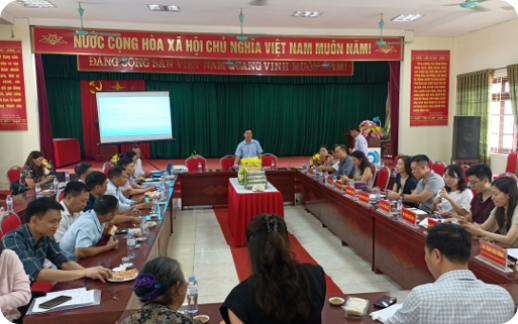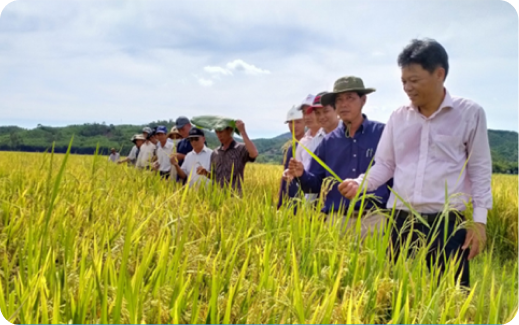Mr. Thien is a smallholder rice farmer based in the Southern Vietnamese province of Long An. He faced a number of challenges that were not uncommon across his community: rising fertiliser costs, declining yields, and the degradation of soil and groundwater sources.
Despite having knowledge over the harmful impacts of conventional agricultural methods and overreliance on industrial inputs like fertilisers and pesticides, Mr Thien was hesitant to adopt an alternative approach. He had concerns over the potential of alternative methods with regard to lower yields, which would threaten his family’s livelihood.
Circumstances began to change after he received training on low-carbon farming techniques through the climate-smart rice cultivation initiative run by the Vietnamese Farmers’ Union. Throughout this programme, Mr Thien benefited from hands-on knowledge about how to reduce nitrogen fertiliser use, drain paddy fields, and recycle plant material into useful soil amendment.
Although initially sceptical, he tested these methods on a small plot and was surprised to see multiple positive outcomes. These included lower input costs, fewer pests, and most importantly, no loss in yields. Using a leaf colour chart, Mr Thien was able to accurately assess fertiliser needs, alleviating any doubts he had about potential yield loss due to inadequate nitrogen for his crops using low-carbon techniques.
After successfully applying these techniques in the trial, his family adopted the full suite of methods across their 8-hectare farm. As a result, the farm experienced a 10% increase in profitability per crop, thereby boosting their household income.
Now, Mr. Thien has full confidence in climate-smart agriculture, which has the capacity to simultaneously bring environmental, health and economic benefits to his community. He hopes to help other farmers adopt the same climate-smart practices to improve their livelihoods whilst restoring land and safeguarding local water quality.



